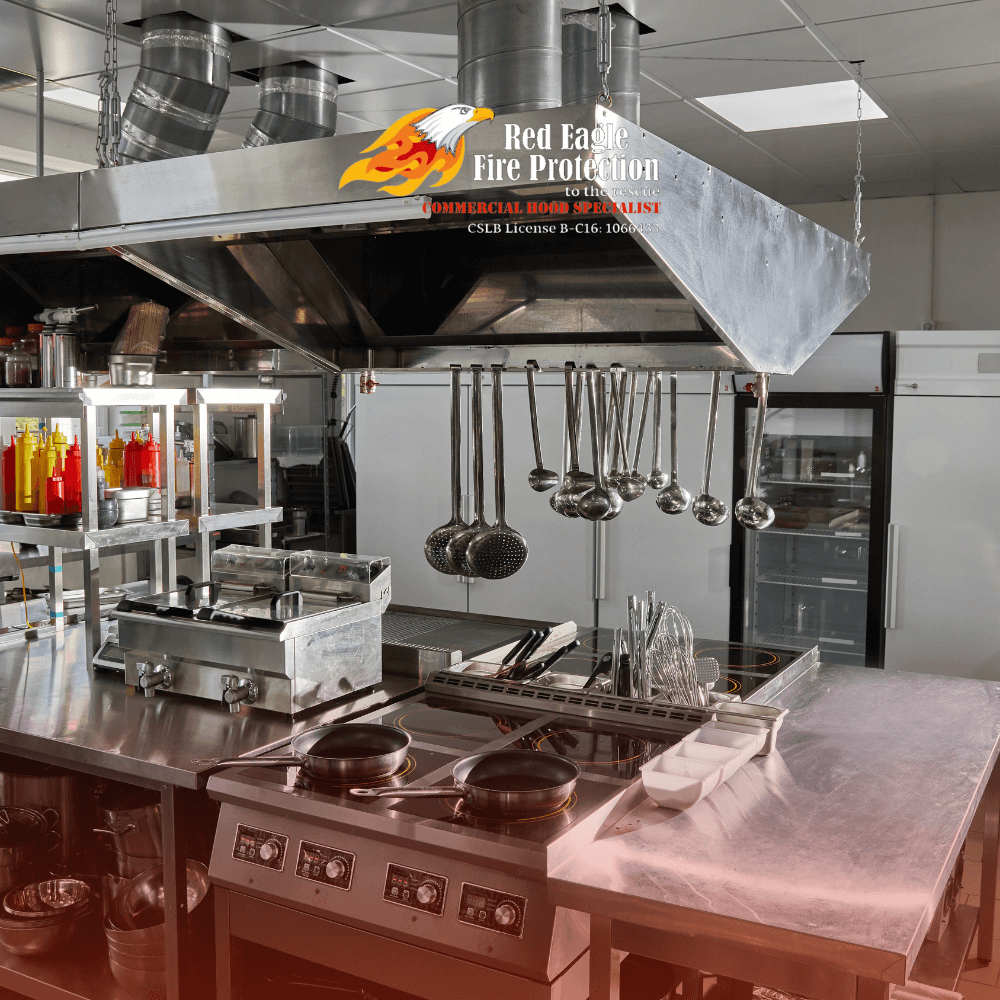Running a commercial kitchen involves maintaining a safe environment, and one key aspect is ensuring proper kitchen exhaust hood cleaning. Without regular cleaning, grease buildup can turn your kitchen into a serious fire risk. Understanding how to prevent this through routine cleaning can help keep your kitchen safe and efficient.
The Dangers of Grease Accumulation in Kitchen Exhaust Hoods
As you cook, grease and oil particles rise and stick to the surfaces of the exhaust hood and ductwork. Over time, this residue forms a thick, flammable layer, increasing the risk of kitchen fires. A spark or high heat from cooking can ignite this buildup, causing flames to spread rapidly through the ducts. That’s why regular kitchen exhaust hood maintenance is critical for preventing such hazards.
Why Regular Kitchen Exhaust Hood Cleaning Is Essential
Routine cleaning of your kitchen hood offers more than just a cleaner kitchen. It significantly reduces fire risks, improves air quality, and ensures compliance with safety regulations. Here’s how:
- Fire Risk Reduction: Removing grease buildup prevents potential grease fires that could endanger your staff and property.
- Enhanced Air Quality: Cleaner exhaust hoods reduce smoke and odors, improving the overall environment for both staff and customers.
- Regulatory Compliance: Many local fire codes require regular exhaust hood cleaning to meet safety standards, keeping your business in compliance.
Professional vs. DIY Kitchen Exhaust Hood Cleaning
When it comes to keeping your kitchen exhaust hood clean, you have options. Understanding the differences between professional services and DIY methods can help you choose the right approach for your kitchen:
Benefits of Hiring Professional Kitchen Exhaust Cleaning Services
A professional kitchen exhaust cleaning company uses specialized tools to thoroughly clean the entire system, from the exhaust hood to the ductwork. This ensures that all grease deposits are removed, providing a deeper clean than most DIY methods can achieve. It’s a smart choice for busy commercial kitchens that accumulate grease quickly.
DIY Methods for Maintaining a Clean Kitchen Exhaust Hood
For smaller kitchens or as part of regular upkeep, some opt for DIY methods like degreasing sprays and scrubbing accessible parts of the hood. While this can help in the short term, it is often not as comprehensive as a professional cleaning. Be sure to reach all corners of the exhaust system to avoid hidden grease buildup that can pose risks.
How Often Should You Clean Your Kitchen Exhaust Hood?
The frequency of kitchen exhaust hood cleaning depends on how often your kitchen is in use. High-volume restaurants should consider professional cleanings every three months, while smaller operations might manage with cleanings twice a year. Regular inspections can help you identify when it’s time for a more thorough cleaning.
Keeping Your Kitchen Safe from Fire Hazards
Neglecting kitchen exhaust hood cleaning can lead to dangerous grease buildup, turning your ventilation system into a fire hazard. Regular cleaning not only keeps your kitchen safer but also contributes to a more pleasant working environment. Whether you choose professional services or tackle it yourself, maintaining a clean exhaust hood is crucial for the safety and longevity of your commercial kitchen.
READ MORE:

